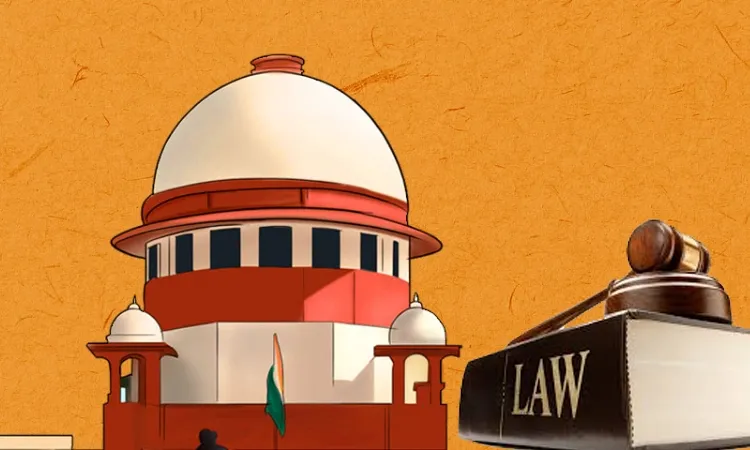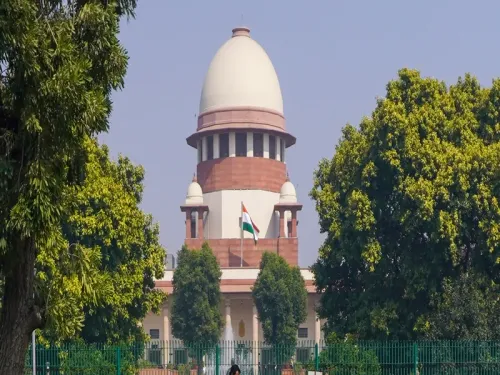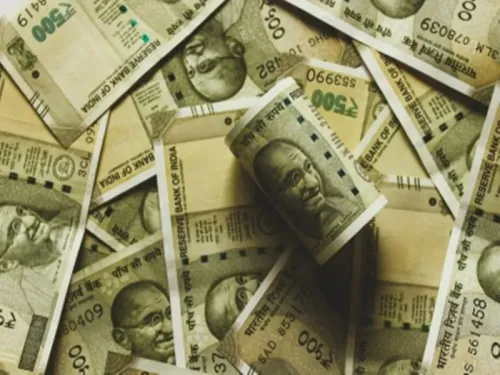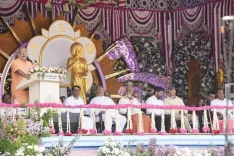Why Has the SC Summoned a Bihar IPS Officer?

Synopsis
Key Takeaways
- Supreme Court's Action: The apex court has shown a zero-tolerance approach to casual conduct by law enforcement.
- Accountability: The summoning of a senior officer emphasizes the need for accountability at all levels.
- Rule of Law: This case reinforces the importance of upholding the rule of law in the justice system.
- Judicial Scrutiny: The court's scrutiny of affidavits reflects its commitment to justice.
- Implications for Law Enforcement: The incident may prompt a reevaluation of procedures among police officials.
New Delhi, Aug 4 (NationPress) The Supreme Court has summoned a senior Bihar police officer to appear in-person after he submitted an affidavit supporting the accused in a criminal case.
A Bench of Justices Ahsanuddin Amanullah and S.V.N. Bhatti issued a show cause notice to IPS officer Ashok Mishra, the then Superintendent of Police of Bihar’s Samastipur, for what it described as a “most casual manner” of filing an affidavit before the apex court.
Mishra is currently positioned as Superintendent of Police (G), Special Branch at Police Headquarters in Patna.
His conduct was called into question after the state of Bihar submitted a counter-affidavit on April 4, 2025, backing the accused—disregarding that the crime had been registered by the Bihar Police, leading to a conviction after due investigation and prosecution.
In a ruling made on May 19, the Supreme Court mandated the impleadment of IPS Mishra – the then Samastipur SSP – as a respondent in the case and ordered him to file a personal affidavit detailing his position.
When the case was revisited on August 1, the Justice Amanullah-led Bench reviewed Mishra’s explanation, in which he attributed the contentious segments of the affidavit to “inadvertence/oversight” and offered an unconditional apology.
However, the Supreme Court expressed astonishment that such a rationale was put forth and remarked that the deponent had affirmed the affidavit in an exceedingly casual way.
In sharp terms, the Supreme Court stated, “If this is the seriousness shown by a senior officer towards this Court, one can well understand the approach towards other Courts.”
Noting that an unconditional apology would not suffice, the Justice Amanullah-led Bench chose to take judicial notice of what it referred to as “conduct prejudicial to the interest of the State and the rule of law.”
“Thus, we put Mr. Ashok Mishra, I.P.S., on notice and issued a show cause for him to clarify why this Court may not adopt a strict perspective and pass appropriate orders against him,” the top court directed, mandating the officer's presence on August 19.









